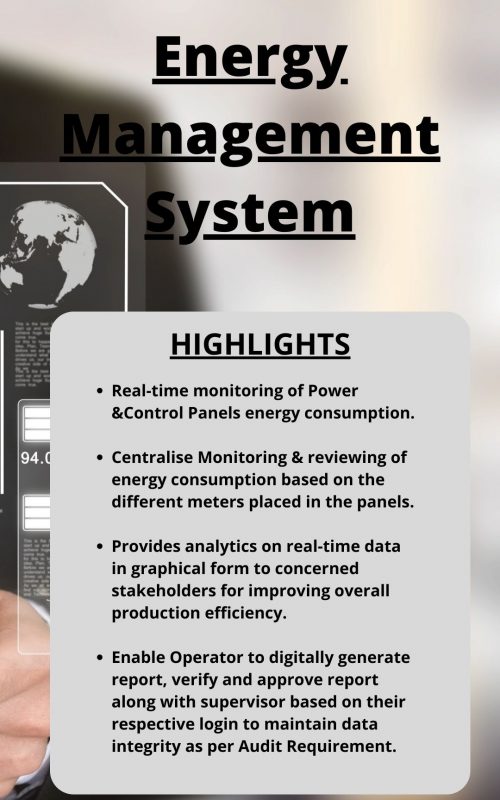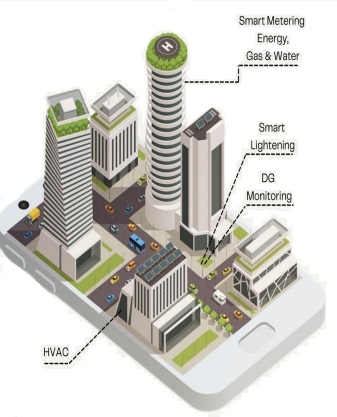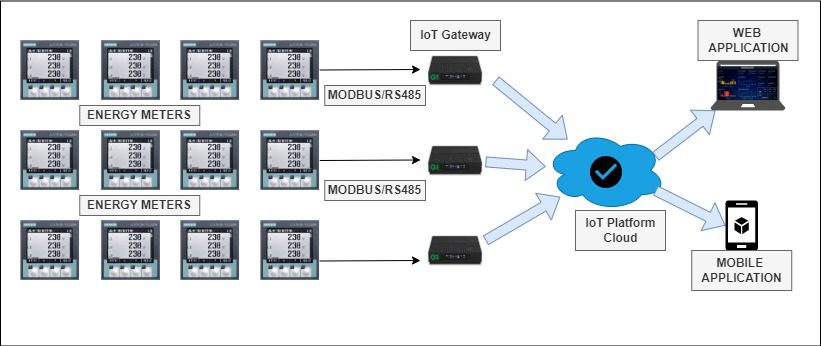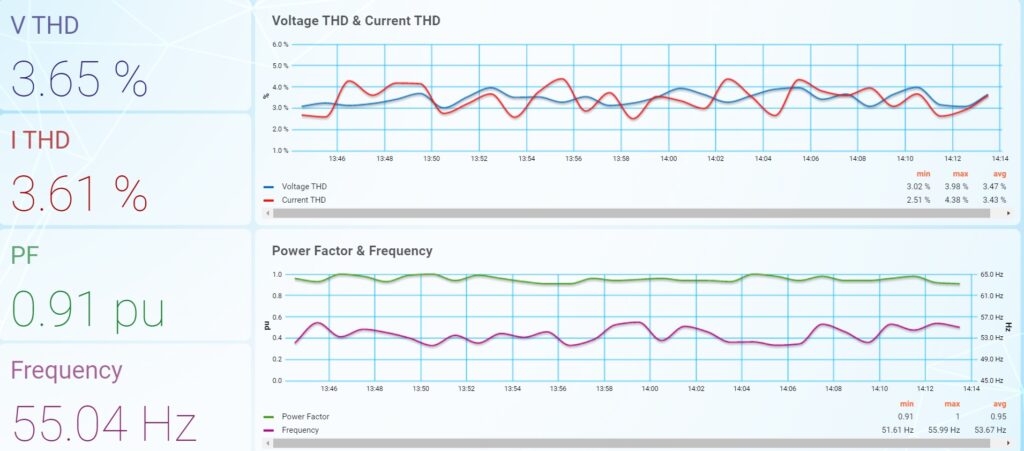
This involves improving our energy networking system by providing smart control and communicative data technologies to give consumers control of their energy needs. We provide end to end project design and services for customised Energy Solutions.

INTRODUCTION
Industries are already fraught with rising energy demands. We offer universally compatible, smart and comprehensive Energy Management Solutions aimed at optimizing energy consumption & expenses and enhancing the overall operations of Industrial & Commercial enterprises. The Solution offers proactive monitoring of energy equipment’s, periodic health assessment of assets & deep insight into the consumption pattern of complex energy networks in buildings, factories, retail chains, geographically dispersed and remotely located assets, and smart city projects.

Energy Management System Architecture


Benefits of Energy Management System
Monitors Hundreds of Remote Sites in A Unified Portal
- Improves Energy Budgeting Corresponding to The Plan
- Understands and Visualizes the Energy Profile of Your Organization
- Helps Better Energy Planning with Pre- Defined Targets / Kpi
- Available as On-Premise & Cloud Based Application
High Level Capabilities :
Energy metering and management | Asset utilization and
consumption measurement | Alarms on Anomalies and
escalations | Micro and Macro views of remote data | Real- time data analytics | Map-based geo visualizations | ERP
integration.
Why Energy Management
Energy management is today’s need of
- Energy Management saves costs
using an EMS in a building may bring up to 27% savings on total energy consumption costs. Secondly, even a small measure undertaken, like replacing old CFL bulbs with more energy-efficient LED lights, can reduce the lighting energy consumption by around 50% over a long period of time.
- Understand Your Power Factor
Your power factor helps you understand how much of the power you’re using to do productive work. All industrial processes that involve electric motors draw inefficient currents of power. A low power factor means that your utility company has to generate more power than required. Electricity companies charge you for this wasted power. By implementing an energy management system, you will be able to identify a low power factor and take the steps to improve it. This will reduce your energy costs significantly.
- Improve Your Business Model
By eliminating waste and reducing overspending, you will be able to lower your operating costs. In turn, you will run your business more efficiently. By using energy more efficiently and purposely, you will see savings across the board. Improve your business as a whole by developing organization-wide energy goals. Making these strategic decisions will determine the financial future of your organization.
- Information is Power
An energy management system will provide you with invaluable data. You will then understand your impact on the power grid and be able to determine which business operations use the most energy.
- Identify Room for Improvement
- Ease of Control
- Automate Repetitive Tasks
- Spend Less on Updates
Real Time Data Energy Consumption










